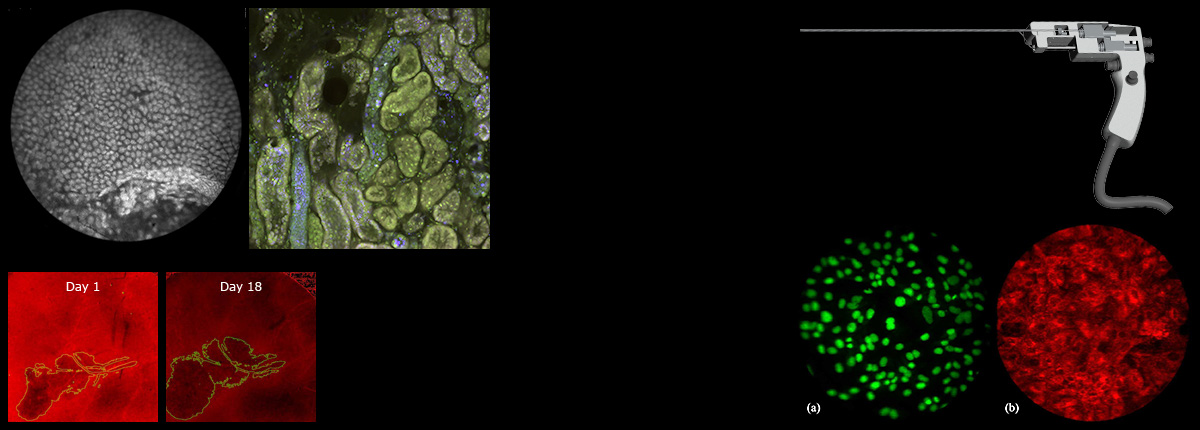Optical systems play an important role in medical imaging from furthering our understanding of fundamental biological processes on up to diagnosing and staging disease in humans. Optical imaging systems can achieve spatial resolution at the cellular to sub-cellular level. Technical advances have enabled imaging down to several hundred microns below the tissue surface and in certain cases even deeper penetration is possible.
In the Department of Medical Imaging, major research is ongoing in areas related to the development of advanced optical microscopes, endoscopes, and microendoscopes; for example advances in confocal microendoscopy related to disease diagnosis. Additionally, several faculty members are involved in multi-modality imaging (optical, MRI, ultrasound, photoacoustic, nuclear) of window chamber models of cancer, which is a technique that enables scientists to study the microenvironment of a tumor while it grows over a period of several weeks. The department also has ongoing research programs related to the development of new molecular imaging agents for MRI, nuclear medicine, and optical imaging.
The Department of Medical Imaging maintains a close and synergistic relationship with the College of Optical Sciences and the Department of Biomedical Engineering. Outstanding cross-disciplinary medical imaging research in these departments includes programs in optical coherence tomography, optical spectroscopy, and diffuse optical tomography. Together, these varied programs have made strong contributions to the field of optical imaging and to the practice of clinical medicine and preclinical biomedical research.



